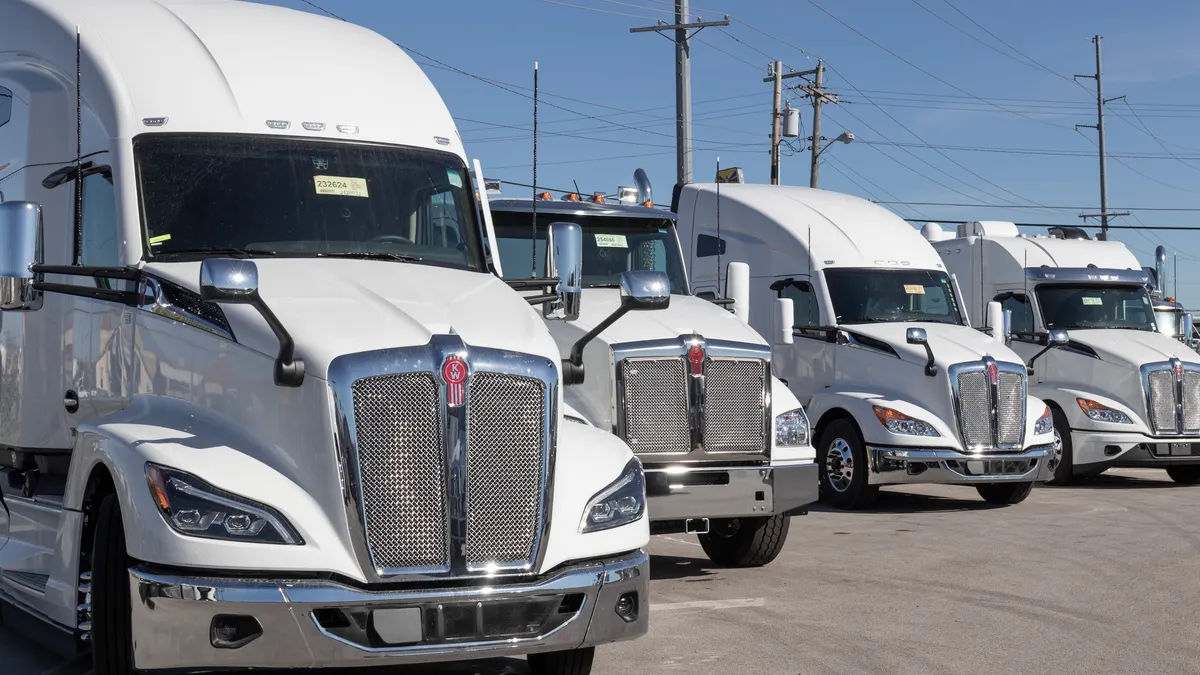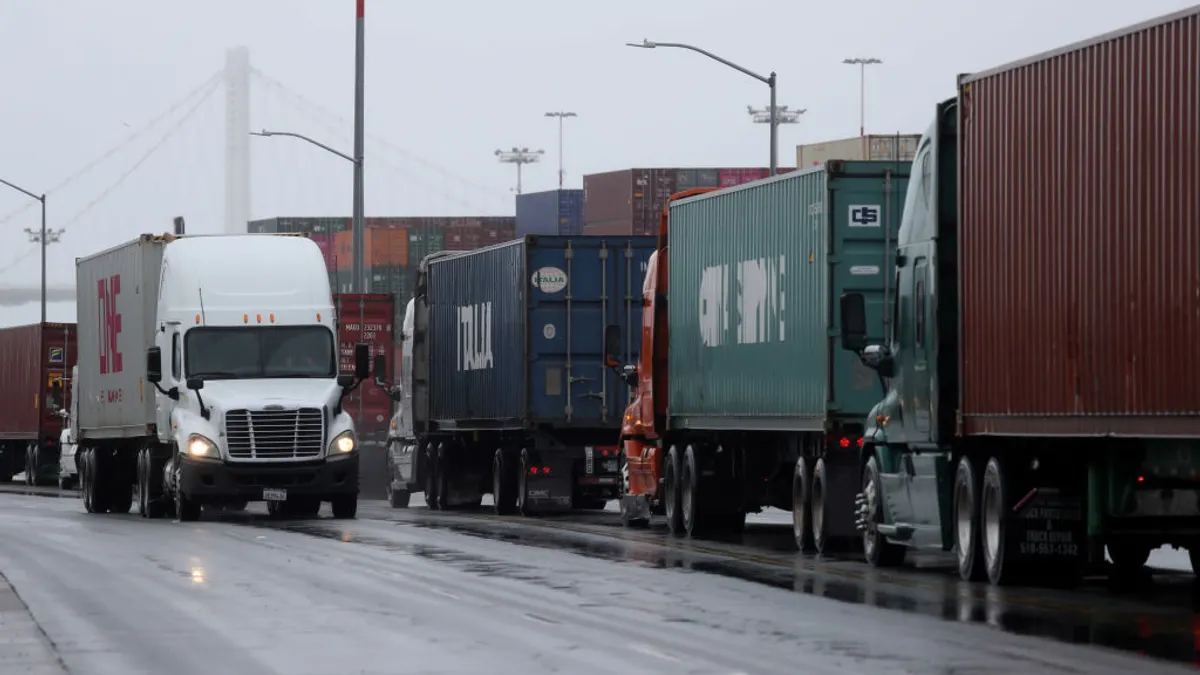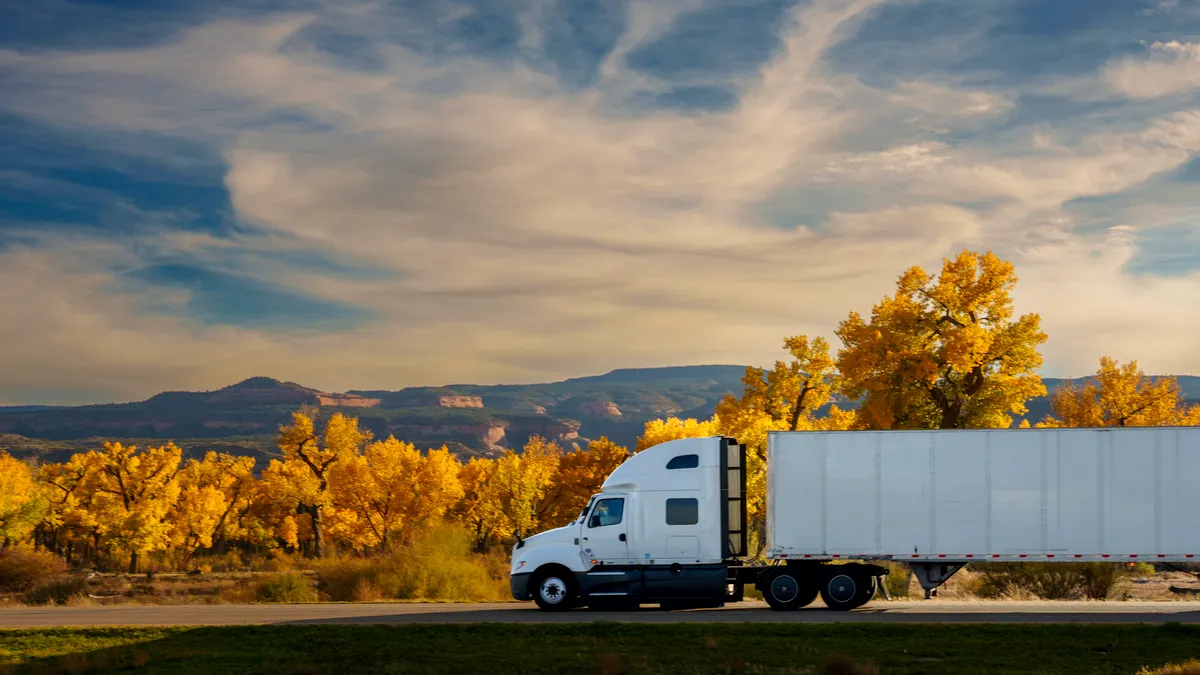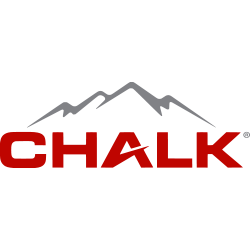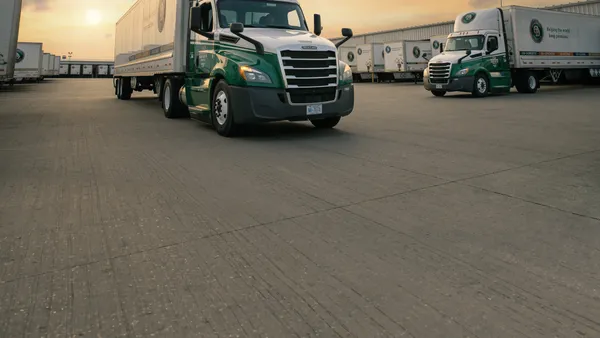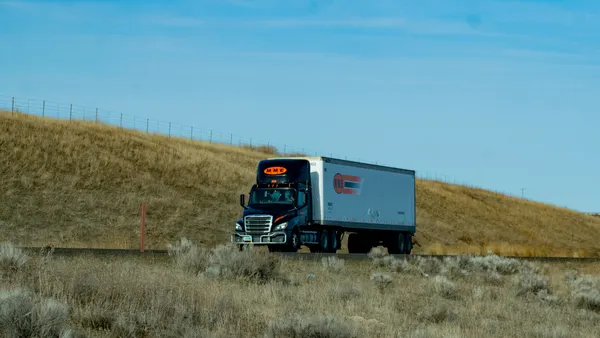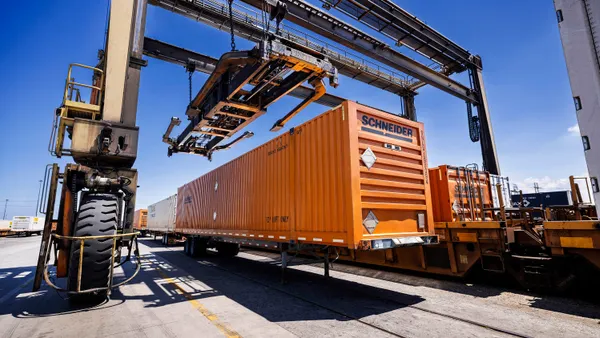Dive Brief:
- Paccar, which builds more than 90% of its U.S.-sold trucks domestically, expects to gain a competitive advantage when the new Section 232 tariffs take effect on Nov. 1, executives said during the company’s Q3 earnings call held Oct. 21.
- The Kenworth and Peterbilt manufacturer produces trucks in Texas, Ohio and Washington, giving it a stronger footprint than several of its rivals.
- CEO Preston Feight said Paccar anticipates greater pricing stability and market clarity in 2026 as tariff-related headwinds ease.
Dive Insight:
While tariffs have pressured many OEMs, Paccar’s U.S.-based manufacturing network may turn that challenge into an edge.
The company’s Q3 results showed pricing was down by more than 1%, and costs were up nearly 5%, which translated to tariff surcharges of $3,500 to $4,000 per truck.
Feight said those costs are anticipated to decline once the new Section 232 structure takes effect, potentially allowing Paccar to gain market share through more competitive pricing.
“It will be hopefully some benefit to everybody in terms of our dealers, our customers, our suppliers, that we should have kind of some positive momentum out of this,” Feight said. “The quantification of it remains to be seen.”
Still, the broader freight recession continues to dampen demand, particularly in the truckload market.
“I think the truckload sector has been in a tough spot for, gosh, 30 months plus,” Feight said. “They are using the equipment, so that bodes well for the fact that they'll get back under replacement cycles.”
That dynamic has helped Paccar Parts achieve record quarterly revenue of $1.7 billion, even as it limits the company’s outlook for Class 8 retail sales.


